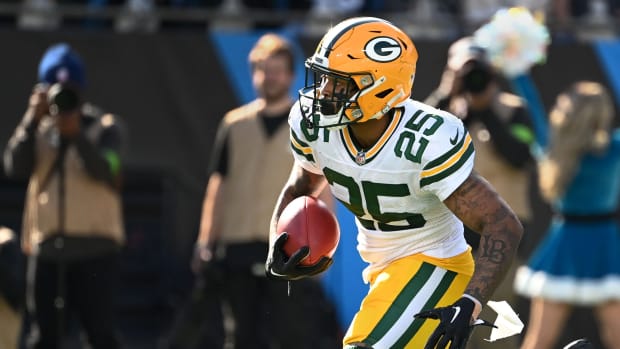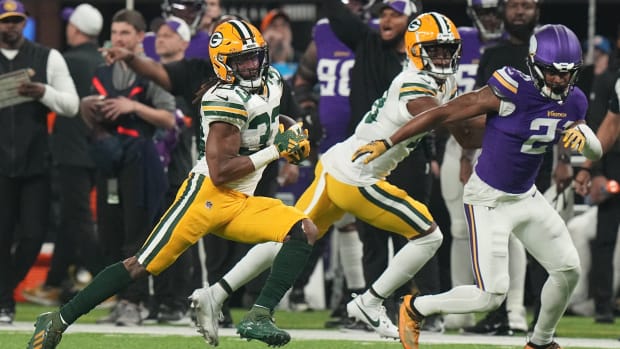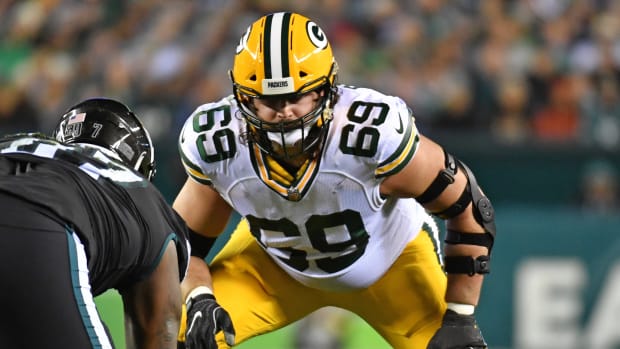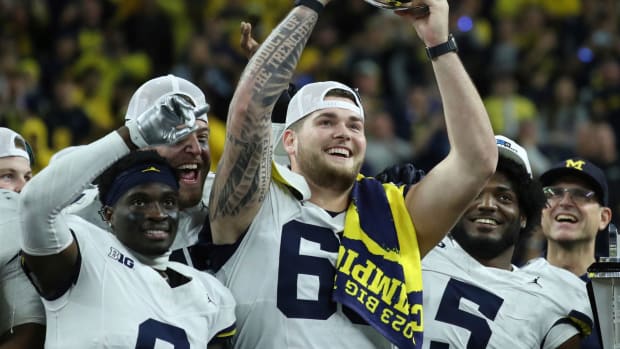Here’s the Analytics Against LaFleur’s Fourth-Down Decision
GREEN BAY, Wis. – Green Bay Packers coach Matt LaFleur mostly made the right moves this season.
But, with a trip to the Super Bowl on the line, the analytics suggest LaFleur made a huge blunder late in Sunday’s NFC Championship Game.
“What’s always interesting to see is you’ve got these coaches, especially the young guys who are very analytically driven and they get it right often, but then they get down to that big moment – here you are in the NFC Championship Game and you kind of pucker up when he shouldn’t have. I’m sure he regrets it today,” said Frank Frigo, the co-founder of the analytics site EdjSports.
On fourth-and-goal from the 8 late in the fourth quarter, LaFleur could have kept his MVP quarterback, Aaron Rodgers, and the offense on the field for one more shot at a touchdown. Or, he could kick a field goal and hope his defense could get a stop.
LaFleur kicked a field goal to pull the Packers within 31-26. The defense couldn’t get the stop and the Packers fell a step short of the Super Bowl for the second consecutive year.
According to EdjSports’ customized simulation, LaFleur’s decision cost the Packers a 3 percent “game-winning chance.”
“That doesn’t seem like a lot but it’s a significant error,” Frigo said. “The game state dictates the magnitude of the error. The Packers’ win probability was already very low.”
Trailing by eight points with time ticking away, the Packers needed a touchdown, a two-point conversion and a defensive stop in regulation, and another score (most likely in overtime) to win. That’s a lot of dominos that had to fall the right way. With just more than 2 minutes remaining, their game-winning chance was only 10.8 percent. Taking 3 percent off that essentially dropped their chance of winning by about 28 percent.
“That 3 percent difference is a really significant chunk of what they had available. That’s the real crux of the issue is that it was such a big part of their available equity,” Frigo said.
After the game, LaFleur said his decision was swayed by a few factors. First, the team had failed on three previous snaps from the 8. Second, including the 2-minute warning, LaFleur essentially had four timeouts in his pocket. Finally, his defense had played well in the second half with three interceptions of Tom Brady.
“The problem with the situation is they’ve got to score a touchdown, regardless. Either way, he’s got to stop Brady and Brady’s not an easy guy to stop with 2 minutes to go,” Frigo said.
According to Frigo, the “break even” to justify going for the touchdown on fourth down was a 20.6 percent success rate.
“I think Rodgers is certainly better than a 1-in-5 in that situation. I would bet on Rodgers making that on more than 1-in-5; I’d put him closer to 1-in-3,” Frigo said.
Had the Packers scored the touchdown and two-point conversion, the game would have been tied and the defense would have needed to stop Brady to preserve overtime.
Had the Packers scored the touchdown but failed on the two-point conversion, the defense would have needed to stop Brady to get another shot with the ball. Had it gotten that stop, the offense would have had to drive the ball only into field-goal range to win the game.
Had the Packers failed to score the touchdown, the defense would have needed to stop Brady but the Buccaneers would have started at their 8. With a three-and-out stop and an average punt, the Packers would have perhaps started on the Bucs’ side of midfield. At worst, there would have been a Hail Mary.
“Even if they fail, there’s some residual value in having Tampa Bay starting at the 8-yard line. The field position is worth more than most people realize,” Frigo said.
Either way, the situation was dire. Even with the best-case scenario of scoring the touchdown and tying the game with the two-point conversion, there was no guarantee the defense could have stopped Brady from driving to the winning field goal, anyway.
“Realistically, the Packers were in a tough spot, no matter what they did, but they could have done something more optimal than what they did,” Frigo said.





